Russia has mobilized large numbers of men for the war in Ukraine, depleting its workforce while its economy is under pressure from sanctions.
In the first quarter of this year, Russian companies saw their biggest staff shortage since 1998, according to a survey by the Russian Central Bank. The number of workers under 35 in Russia fell by about 1.3 million at the end of last year to 21.5 million, the lowest level since the early 1990s, according to analysis by consulting firm FinExpertiza.
This group accounts for 29.8% of Russia’s total workforce of 72.1 million. In May, Russia’s unemployment rate hit a post-Soviet low, as companies and factories were starved of workers.
According to FinExpertiza, the call-up of some 300,000 men to the army late last year forced many key workers to quit their jobs and go to war in Ukraine. At the same time, the massive migration of men abroad to avoid the call-up has also exacerbated the labor shortage in Russia, a country that has seen its population decline in recent years.
As a result, Russia is facing a shortage of workers in all fields, from programmers and engineers to welders and oil drillers, skills needed to boost the economy and support the campaign in Ukraine.
To stem the exodus, Russian President Vladimir Putin last month ordered measures to stem the exodus of workers, including financial and social incentives for workers. The government has also proposed tax breaks, loans and mortgages to attract workers to the technology sector.
The Russian Finance Ministry has also announced plans to tax the hundreds of thousands of people who have emigrated to countries like Turkey, Armenia and Central Asia since the conflict began but continue to work remotely for Russian companies. Some lawmakers have threatened to confiscate the assets of Russians who have left the country, although no legislation on the issue has been passed.
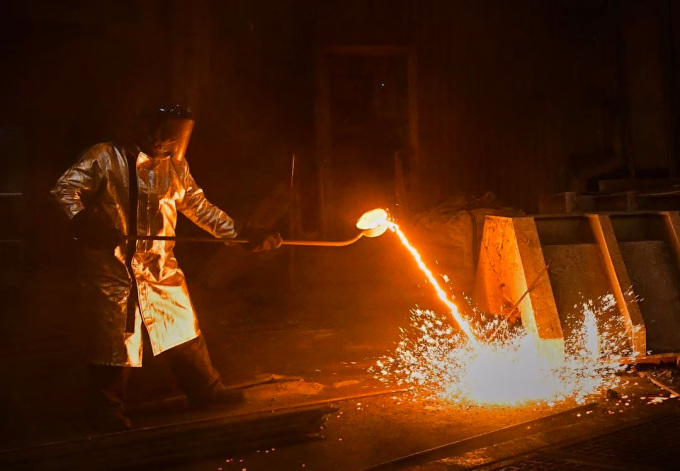
Workers work at the Magnitogorsk iron and steel plant in the city of Magnitogorsk, Russia in October 2022. Photo: Reuters
“The loss of human capital has a bigger impact on the economy than sanctions,” said Vasily Astrov, a senior fellow at the Vienna Institute for International Economic Studies in Austria. “The loss of educated, highly skilled workers will weigh on the economic outlook for years to come.”
When labor is scarce, businesses that want to compete for human resources will have to raise wages, reducing corporate profits and threatening investment plans. The Russian Central Bank also warned that paying high wages to workers will contribute to inflation.
The St. Petersburg Economic Forum, Russia’s premier economic conference, devoted more than a dozen sessions to labor market issues. The Russian Central Bank said that amid a shortage of working-age men, manufacturing companies are increasingly hiring women and older workers.
Yuliya Korochkina, human resources director at Trade Systems Technonicol, a construction materials supplier, said the company was experiencing a shortage of basic and specialist workers. To address the situation, the company has lowered its hiring criteria, increased remote work and automation, and introduced more employee motivation programs.
“We are learning how to maximize work with minimal manpower,” she said.
Thanks to its large oil and gas revenues, Russia’s economy has so far not declined as deeply as Western countries had hoped, following a series of harsh sanctions imposed since the conflict broke out. However, the decline in energy revenues and the growing impact of technology sanctions portend a troubled future for the Russian economy.
Russian officials admit that the labor shortage is also hurting the country's economic growth.
“The labor market is a significant constraint on increasing production,” said Elvira Nabiullina, governor of Russia’s central bank, citing labor shortages in machine building, metallurgy, mining and quarrying, industries that are vital to Russia’s war in Ukraine.
During a visit to an aircraft factory in the eastern Siberian city of Ulan-Ude in March, Mr Putin said a lack of highly qualified specialists was hampering military production.
“We understand that many businesses are now operating three shifts a day and are lacking in professionals, especially highly qualified ones,” he said.
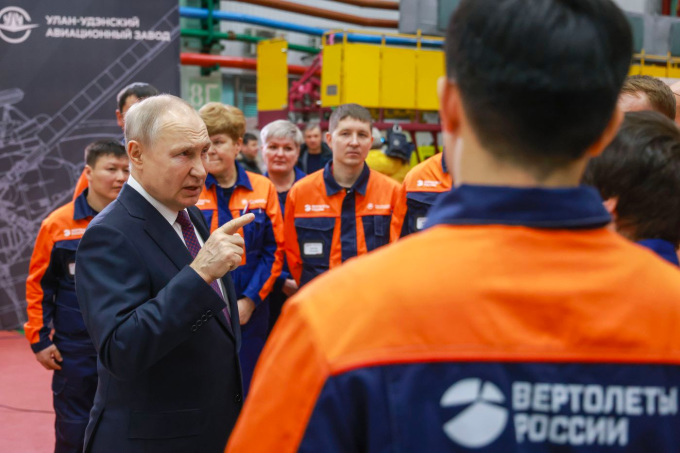
Russian President Vladimir Putin visits an aircraft factory in the city of Ulan-Ude, Eastern Siberia in March. Photo: Sputnik
More than a million people have fled Russia since the conflict in Ukraine began in late February. While some have returned, the mass exodus has exacerbated Russia’s demographic problem. Due to low birth rates, Russia’s population of about 145 million could shrink by more than 1 percent by the end of the century, according to United Nations estimates.
Russia appears to be making up for its labor market shortfall with immigration from neighboring countries, especially in Central Asia. The Russian Central Bank said that the number of workers immigrating to Russia increased last year, but the number of highly qualified foreign specialists fell by 29%.
About 35% of manufacturing companies reported labor shortages in April, the highest level since 1996, according to a monthly survey by Russia's Gaidar Institute for Economic Policy.
Marina Petuhova, HR director at electrical equipment manufacturer EFK, admits they are struggling to find engineers, designers and product managers. EFK has stepped up training and incentives for workers of all age groups, including retirees.
“Labor shortages affect the company’s ability to launch new products, productivity and product quality, leading to a decline in sales and the company’s brand,” she said.
More than half of Russian companies face a shortage of IT staff, while the time it takes to find a suitable candidate has nearly doubled, according to an April study by Moscow-based consulting firm Yakov & Partners and HH.ru, Russia's largest recruitment platform.
“It is becoming more difficult to find experienced employees. This situation inevitably leads to a decrease in company productivity,” said Natalia Danina, head of the HH.ru analytics department.
Thanh Tam (According to WSJ )
Source link










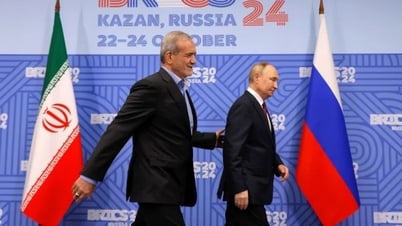

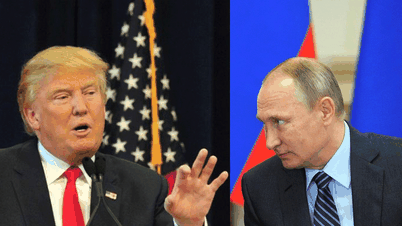


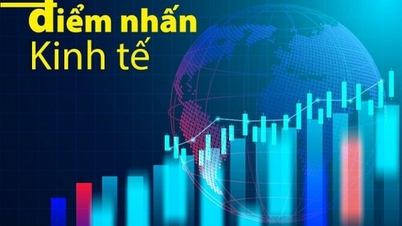


































































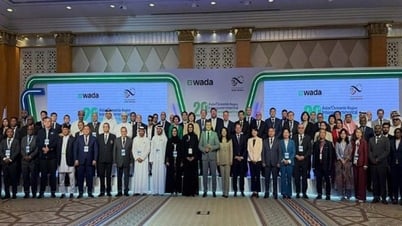





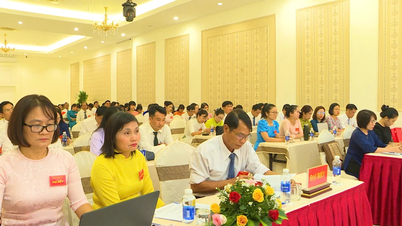
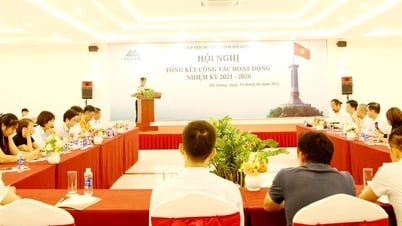










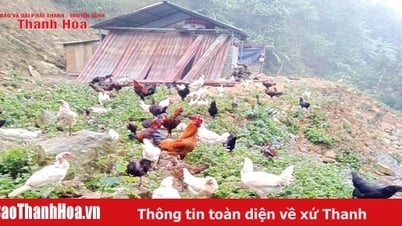


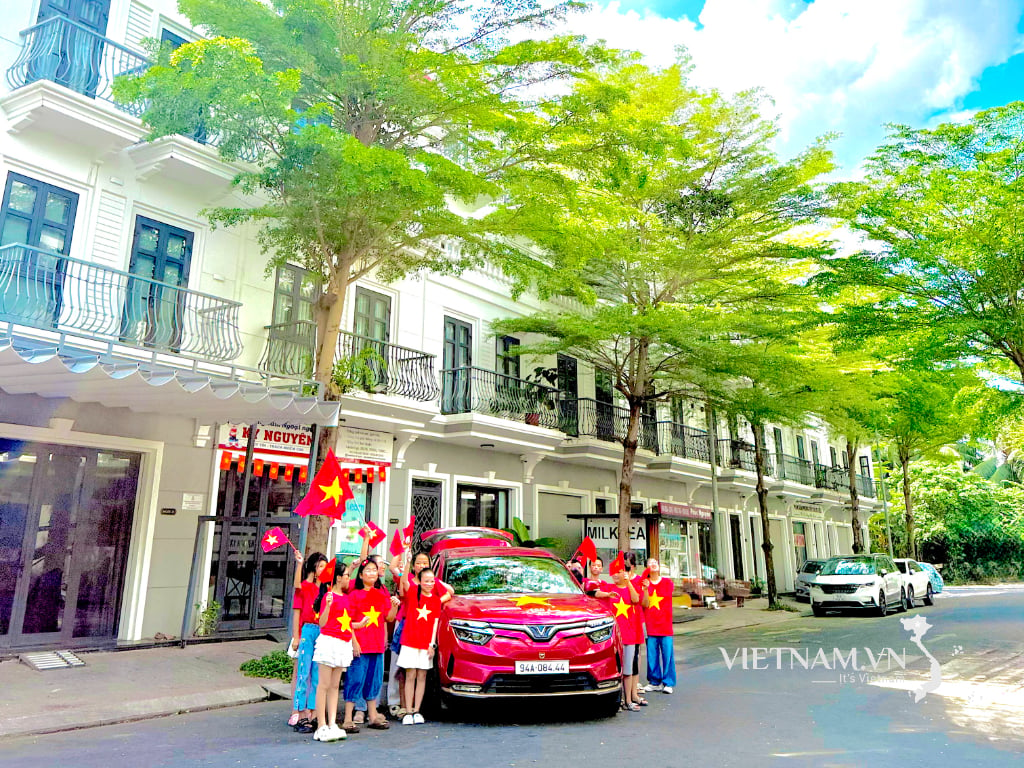

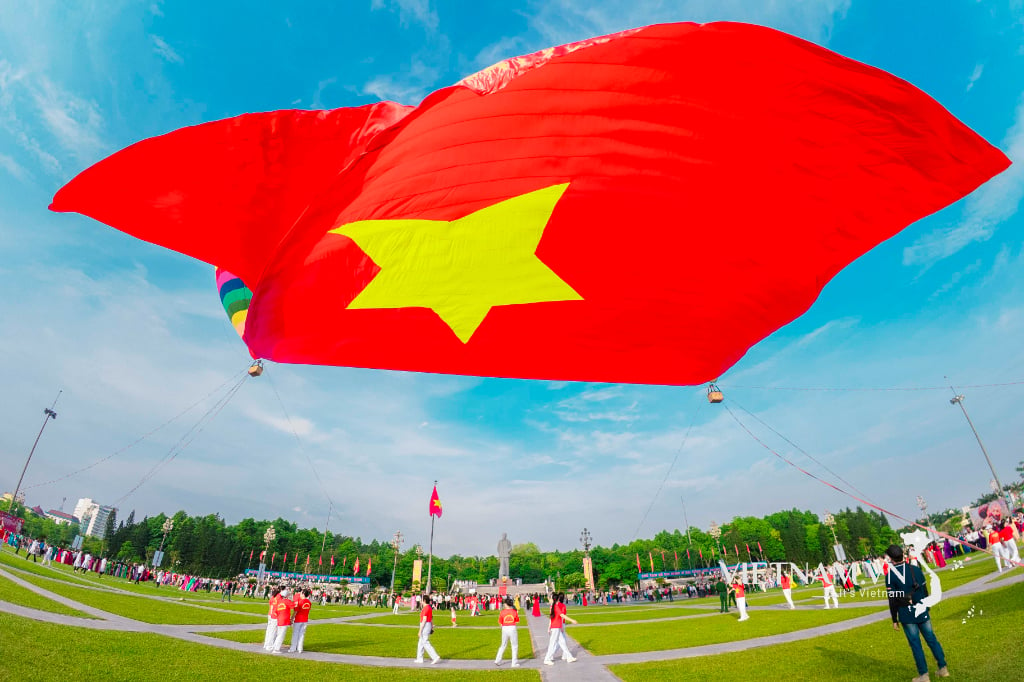
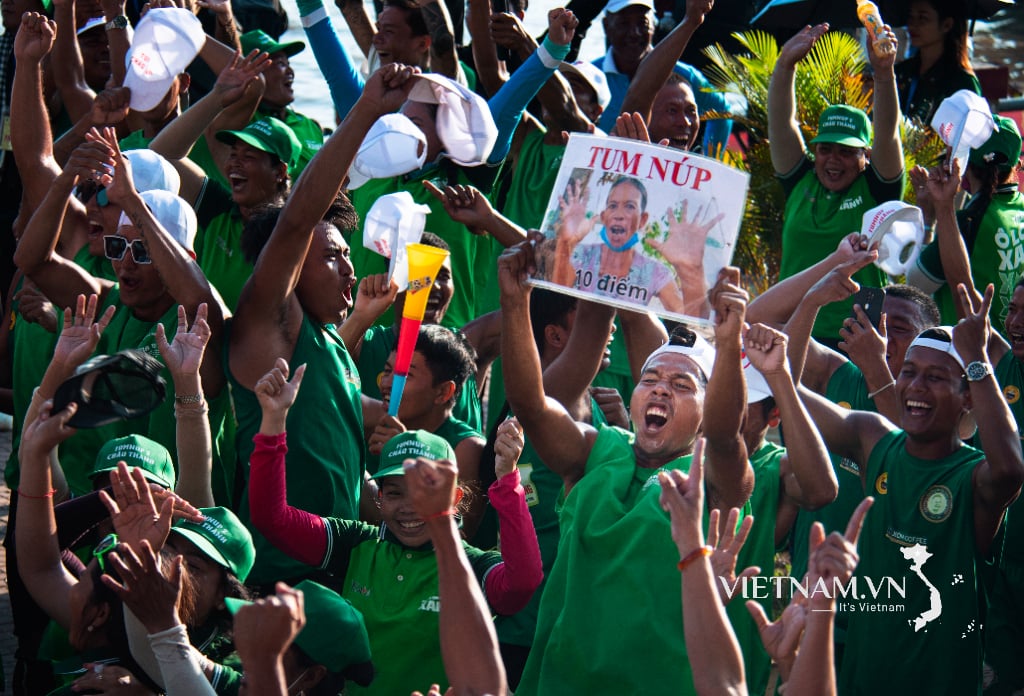
Comment (0)